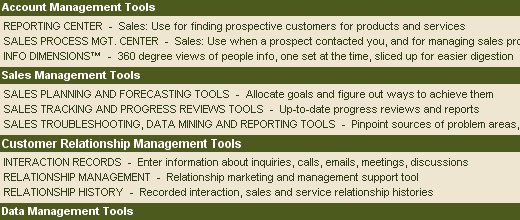Website sections:
Current section's content:
- Overview of IT Project Management
- Leadership, Management and Development: Theory
- Leadership, Management and Development: Personal Experience
- Who Should Manage IT Projects, Subject Matter Experts or IT Professionals?
- Optimization Management: Quality, Cost and Schedule
- IT Project Problem Areas
- Running IT Projects Like Small Businesses
- Working with Offshore Partners: Opportunities, Challenges, Cultural Issues












Running IT Projects Like Small Businesses
I have noticed that in one way or another, practically every project needs to address the following areas:
- Leadership, management and development - Setting project development objectives and ways to achieve these objectives, managing the project development process, and making sure that the project moves along towards a successful completion.
- R&D (Research and Development) - Collecting information about and understanding customers needs and wants and ways to implement these needs and wants.
- Finance - Ensuring that sufficient financial means for the project development are available in a timely manner.
- Operations - Application production and service providing (maintenance and updates).
- Marketing - Making sure that as broad customer base as possible is aware of the new product or service features and benefits.
- Sales and customer service - Actively selling the new product or service features and benefits to the existing and prospective customers. Ensuring that the customers new product and service usage related needs are met as feasibly as possible.
- Human resources - Ensuring availability of people who are proficient at carrying out all the project development tasks.
- IT - Ensuring that the right technology is available, functions as needed and produces the needed results.
The above list reflects the administrative side of the project development and management.
Sometimes only some parts of this side - namely leadership, management and development, R&D and operations - are being addressed adequately by project developers and managers. For example, project developers and managers may focus primarily on deciding whether to use predominantly predictive or agile application development strategy, and which production tasks to outsource and which ones to handle within the company.
However, that's not enough.
If nobody acts as a marketing person who is able and willing to communicate to the application's future users what the application's features and benefits are, an otherwise good project may fail.
Further, marketing is usually most successful when done strategically and repeatedly. Once the new application's development process is in the production stage, marketing activities should coincide with the production-related work.
So, this may require budgeting for the necessary marketing activities and making sure that the relevant activities are carried out at suitable intervals and in an otherwise feasible manner.
Similarly, skilled professionals have to sell the new product or service features and benefits to the existing and prospective customers. Further, as applicable, skilled professionals have to ensure that the customers new product and service usage related needs are met as feasibly as possible.
Both marketing and sales must be done ethically. Creating unrealistic expectations can kill an otherwise good project, just like not meeting realistic expectations can ruin it.
Further, it should also be noted that in certain aspects R&D is distinctly different from marketing and sales. An ethical approach is to research customers needs and wants and to determine the best solution that meets these needs and wants. For an IT company an unethical approach would be to market its services to a customer, trying to fit its services to the customer's needs and wants criteria, regardless of how good a fit actually does exist.
So, all the areas that are relevant to business management are relevant to project management as well. Comparison to running a small business is applicable here, because people who handle project development and management tasks usually have to wear many hats.
Keeping the above list of areas that need to be addressed in mind can be helpful, because if any part of this list is left unaddressed, it is very likely that the unaddressed areas will cause problems down the road.

